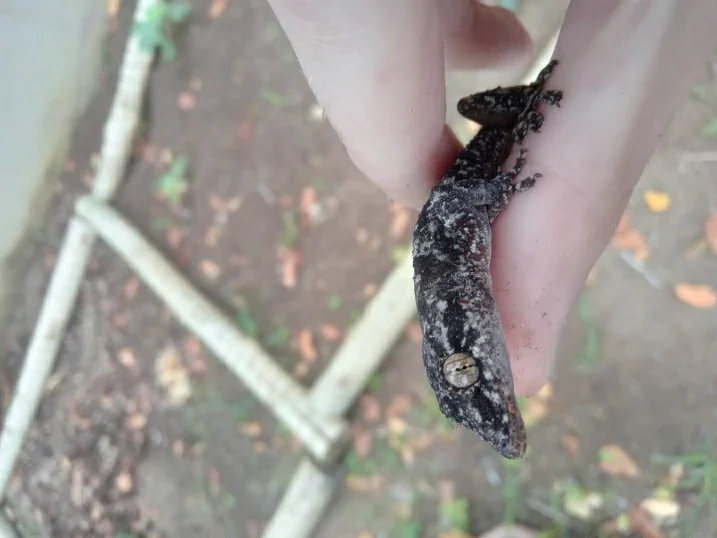You’re relaxing in a cool room when the air conditioner suddenly clicks off. You check the unit and find a small gecko hiding inside. It looks harmless, but it could have caused serious damage.
So why do geckos love air conditioners, and how can you keep them out for good?
You can keep geckos out of your air conditioner by sealing entry points, using mesh covers on vents, controlling insects nearby, and applying natural repellents like peppermint or garlic spray.
Geckos sneak into aircon units for warmth, moisture, and insects. Once you remove those things, they’ll usually stop coming back.
Why Geckos Are Attracted to Air Conditioners
Geckos aren’t trying to destroy anything. They’re just following comfort and food.
-
Warmth. The aircon’s parts stay warm even after it’s turned off.
-
Moisture. Condensation drips provide water to drink.
-
Insects. The light and warmth attract moths and small flies.
-
Shelter. The narrow gaps feel like safe hiding spots from predators.
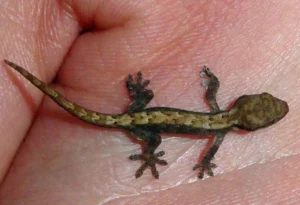
To a gecko, your aircon is like a cozy cave full of insects.
How They Get Inside the Unit
Most people don’t realize how easy it is for a gecko to squeeze in. They often come through:
-
Small gaps around wall-mounted units
-
The drainage pipe that carries condensation water
-
Vent slits or gaps in the outdoor compressor
-
Cracks around the wiring or tubing
Once inside, they hide behind circuit boards or coils, and that’s when trouble starts.
The Damage Geckos Can Cause
Even one gecko can cause problems inside an aircon:
-
Electrical damage. If they touch circuits, their bodies can short the system and burn parts.
-
Bad smells. Dead geckos trapped inside smell quickly.
-
Blockages. Droppings or bodies can clog drainage lines.
-
Noise and malfunction. Fans can hit them or the debris they leave behind.
Sometimes the aircon keeps running but works less efficiently. Other times, it stops completely and needs expensive repairs.
Step 1: Turn Off and Inspect the Unit
Before doing anything, cut power to the unit. If a gecko is inside, it might still be alive and could short something.
Then:
-
Remove the front cover carefully.
-
Look around the coils and circuit area.
-
Check for droppings, eggs, or small movement.
If you see a gecko, don’t touch it directly. Use a long stick or soft brush to guide it out gently.
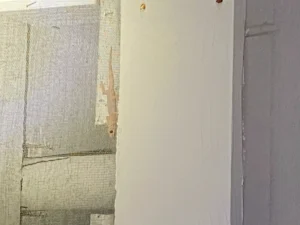
If it’s dead or unreachable, call a technician to clean and disinfect the inside safely.
Step 2: Seal the Entry Points
Once the unit is safe, block the paths they use to get in.
-
Drain pipe: Install a mesh or filter screen over the pipe end. It still lets water out but blocks geckos.
-
Wall gaps: Use silicone sealant or foam around the tubing hole.
-
Vents or covers: Attach fine mesh or netting with zip ties.
-
Compressor housing: Check for small openings at the bottom and seal them with metal mesh.
It might only take an hour, but it can save months of repairs.
Step 3: Reduce Insects Around the Aircon
If there are no insects near the aircon, geckos won’t see it as a hunting spot.
-
Replace bright outdoor lights near the unit with yellow “bug lights.”
-
Avoid leaving the indoor unit light on at night.
-
Keep walls and floors around the unit clean and dry.
-
Use natural insect repellents like citronella or lemon spray.]
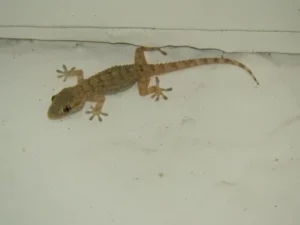
By removing their main food source, you remove the reason they visit.
Step 4: Use Natural Gecko Repellents
After sealing and cleaning, natural repellents help keep geckos away.
-
Peppermint or Eucalyptus Oil Spray: Mix 10 drops of essential oil in a cup of water. Spray around the wall, vents, and tubing. Geckos dislike the strong smell.
-
Garlic Water: Crush a few cloves in water and spray lightly near the base of the unit. The smell fades for humans but geckos avoid it.
-
Eggshells: Place dry halves near the outdoor compressor. Geckos mistake them for predators and stay clear.
-
Coffee Grounds: Scatter used grounds near the floor or wall below the unit. The smell repels both insects and geckos.
Avoid harsh chemicals that can harm pets or damage the unit. Natural methods work quietly and safely.
Step 5: Keep the Area Around the Aircon Clean and Dry
A clean environment makes a big difference.
-
Wipe off condensation regularly.
-
Avoid storing boxes or clutter near the indoor unit.
-
Keep the outdoor compressor area swept and free of leaves.
-
Move potted plants away from the wall, moist soil attracts insects and geckos.
Moisture and clutter are like open invitations. Removing them closes the door.
What If a Gecko Is Inside Right Now?
If you hear scratching or see movement:
-
Turn off power completely. Don’t just use the remote, unplug or cut the switch.
-
Open the cover gently. Don’t poke or hit the unit.
-
Shine a light carefully along edges or coils.
-
Guide it out slowly with a broom handle or soft cloth.
Never spray water or chemicals inside. If it doesn’t come out, close the unit and wait, geckos often leave at night when it’s quiet.
If the aircon stops working afterward, call a technician. The gecko may have shorted something that needs checking.
How to Protect the Outdoor Compressor
The outdoor part is the most common entry point.
-
Cover vent openings with fine metal mesh.
-
Keep the drain hose lifted a few inches off the ground.
-
Trim plants and weeds at least half a meter away.
-
Spray peppermint or garlic water around the base weekly.
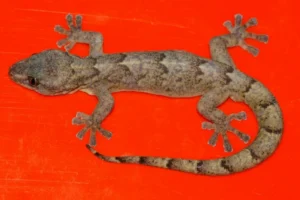
You can also buy a protective cover that lets air through but limits small animals from getting in.
When to Call a Technician
Call a pro if:
-
The aircon stops suddenly and smells burnt.
-
You suspect an electrical short.
-
You find multiple dead geckos inside.
-
The drain keeps clogging even after cleaning.
Technicians can safely clean coils, check hidden spots, and prevent bigger problems.
Preventing Geckos in Split vs. Window Units
-
Split Units (Wall-Mounted): Seal the wall hole where pipes go, cover drain and wire tubes with mesh, keep the back dust-free.
-
Window Units: Seal gaps around the frame with weatherstripping, install mesh on outside vents, avoid leaving windows open at night.
Even tiny gaps are enough for geckos to squeeze through.
What Happens if You Ignore the Problem
Ignoring geckos might seem harmless at first, until your aircon starts failing.
Electrical parts are delicate. A single gecko can short the system and destroy the control board. That can cost almost as much as a new unit.
Moisture inside mixes with droppings or shed skin, creating bad smells. Even though they look harmless, it’s important to deal with the issue early.
Year-Round Maintenance Tips
Keeping geckos out isn’t a one-time fix.
Every week:
-
Wipe the outer surface of indoor and outdoor units.
-
Spray light peppermint or garlic water nearby.
Every month:
-
Check drain pipe and wall openings.
-
Clean air filters to reduce insects.
Every 6 months:
-
Have a technician open and clean the inside.
-
Look for any geckos or droppings.
This keeps the system clean, efficient, and gecko-free.
Can Ultrasonic Repellers Work Here?
Ultrasonic devices can help a bit, but they’re not magic. They work best with sealing and cleaning.
Think of them as a support, not a replacement for real prevention.
Conclusion
Geckos hide in air conditioners for warmth, food, and safety. They don’t mean harm, but they can cause damage and bad smells.
By sealing entry points, reducing insects, and using gentle natural repellents, you can keep your aircon safe, without hurting the geckos or the environment.
A well-sealed, clean, and cool aircon stays free of geckos and runs better for years to come.
Hi, my name is Ezra Mushala, i have been interested animals all my life. I am the main author and editor here at snakeinformer.com.

